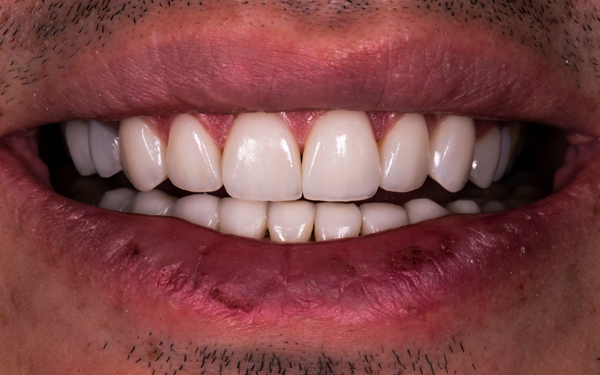 Braces come with many benefits for patients, but one disadvantage that a general dentist may point out is staining. Stains are not an unavoidable result of having braces on for long periods of time. However, braces can make it harder to thoroughly clean teeth on a regular basis, which can eventually lead to stains. Here are recommendations for avoiding this problem so that the teeth remain beautiful and clean when the braces are finally removed.
Braces come with many benefits for patients, but one disadvantage that a general dentist may point out is staining. Stains are not an unavoidable result of having braces on for long periods of time. However, braces can make it harder to thoroughly clean teeth on a regular basis, which can eventually lead to stains. Here are recommendations for avoiding this problem so that the teeth remain beautiful and clean when the braces are finally removed.
Why stains occur
Plaque is the main culprit in staining white, sparkling teeth. It is a sticky, yellowish, or clear substance that forms naturally from the consumption of foods and drinks. If left untreated, it can harden into tartar, which is much harder to remove.
Plaque contains bacteria that slowly eat away at enamel and cause staining. Braces create more nooks and crevices where plaque can accumulate unnoticed and where a toothbrush cannot reach. When braces are removed, those areas become apparent and leave behind discolored decalcified areas on the surface of the tooth.
How to avoid stains
There are many easy steps patients can take to prevent plaque from building up beneath braces. Proper care techniques suggested by a general dentist can be implemented daily and hardly take up any extra time. To prevent staining while braces are in place — which can be for months or years — patients should practice these oral hygiene habits.
Brush more often
Brushing twice a day is something everyone should adhere to, but patients with braces should try to brush after every meal. Any food particles that get stuck and linger beneath the brackets have a greater chance of developing into plaque. Patients who may be away from home after a meal should consider storing a small, compactable toothbrush and travel toothpaste in a purse or car so that brushing is easy to do on the go.
Floss and use mouthwash daily
Round out daily hygiene routines by flossing and using mouthwash. This helps get at tiny crevices around the braces where toothbrush bristles cannot reach. Mouthwash is effective at cleaning out bacteria and germs that can stain teeth. Patients can ask a general dentist for floss that is specifically designed to clean around braces.
Do not use whitening toothpaste
Everyone wants whiter teeth, but using whitening toothpaste while wearing braces can lead to strange discoloration since the toothpaste cannot reach all surfaces of a tooth. The area beneath the brackets will not change color, and teeth can be whiter in certain spots than others when the braces are taken off.
Avoid foods that stain
Some foods are more likely to stain teeth than others. Foods with high acidity or coloration can stain white tooth enamel faster. Tea, coffee, dark sodas, fruit juices, tomato-based foods, curries, and soy sauce are good to avoid.
Conclusion
Keep scheduled appointments with a general dentist to make sure oral hygiene practices are up to par. When braces are finally removed, a patient should be greeted with straight, white teeth, not another problem that needs to be fixed in a dental chair.
Request an appointment or call Queens Family Dental at 718-954-9425 for an appointment in our Flushing office.
Recent Posts
Many patients visiting a general dentist do not fully understand the use of dental X-rays. Patients may wonder if this type of imaging is completely necessary, and it is important to understand the risks and benefits of the procedure. Dental X-ray exposure is safer than ever before, and when patients are knowledgeable about the procedure,…
Tooth extraction frequently occurs in the office of a general dentist for a variety of reasons, including:Bacterial decayAccidental breakageOvercrowdingImpactionMost patients are more concerned about the gap the tooth leaves behind than its fate outside their mouths. An extracted tooth usually takes one of the following paths, depending on whether the dentist or the patient claims…
A general dentist often focuses on the importance of oral hygiene and how it can help the overall health of patients. There are many patients who are unaware of the impact that oral health can have on the heart’s health. The following explains how poor oral hygiene may be connected to the development of heart…


